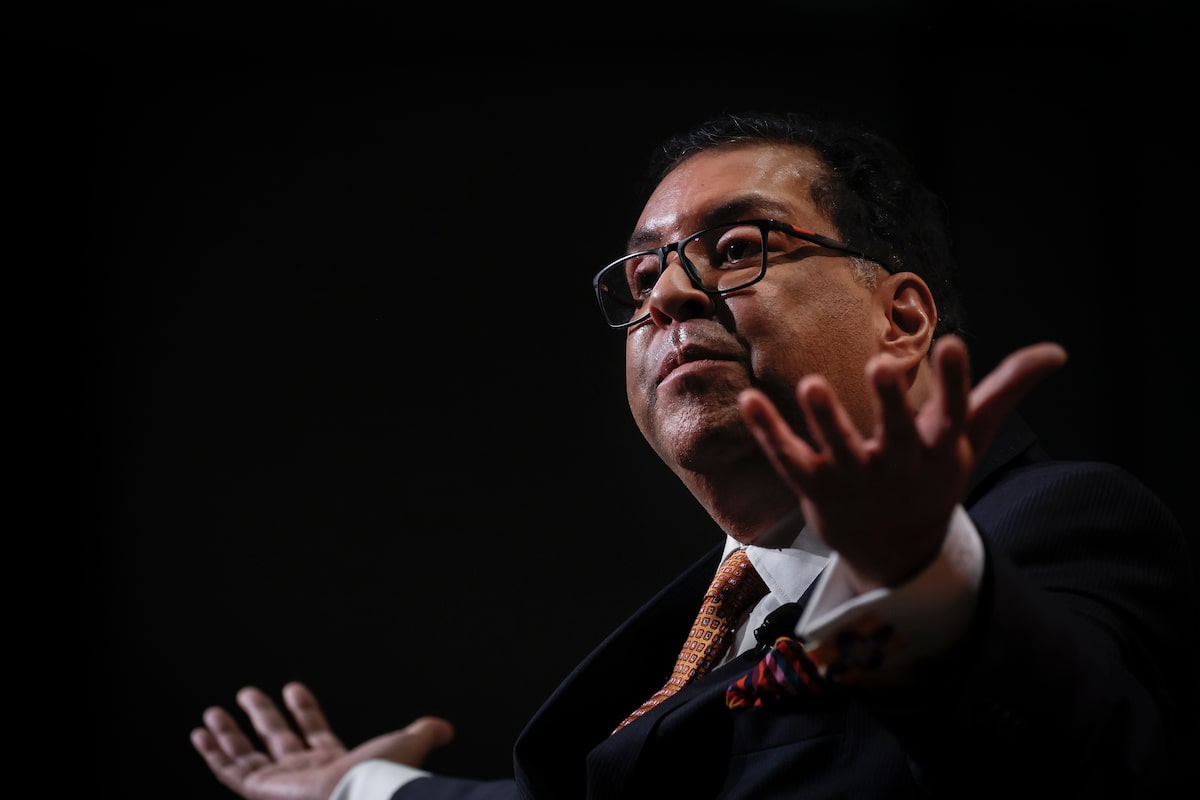Naheed Nenshi won the leadership of the NDP a year ago but lacked a seat as an MLA until now.Jeff McIntosh/The Canadian Press
Alberta NDP Leader Naheed Nenshi is set to make his debut in the legislature in October, after winning a by-election in the safest riding in the province for the New Democrats, while the governing United Conservative Party trounced an upstart separatist challenger in another race.
Mr. Nenshi won the leadership of the NDP a year ago but lacked a seat as an MLA. His Monday night victory means, come fall, he will be able to directly challenge Premier Danielle Smith in the legislature, giving him more visibility across the province. He faced little resistance in Edmonton-Strathcona, previously represented by Rachel Notley, the NDP stalwart and former premier.
Meanwhile, Ms. Smith’s hand-picked candidate in central Alberta won her race in a landslide, indicating enthusiasm for the province’s independence movement is not as frothy as would-be separatists hoped. The UCP’s Tara Sawyer won the Olds-Didsbury-Three Hills contest with 61 per cent of valid votes cast while the separatist Republican Party of Alberta finished in third place, behind the NDP.
The NDP retained control of the third seat, in Edmonton-Ellerslie, that was up for grabs Monday.
Naheed Nenshi now has a seat in the legislature. Time for Alberta’s NDP Leader to come out of hiding
Recent polls indicated roughly 30 per cent of Albertans support their province leaving Canada, and Olds-Didsbury-Three Hills is widely considered a separatist hotbed. However, Cameron Davies, the leader of the Republican Party of Alberta, garnered roughly 17 per cent of valid votes cast in the riding, down from his target of about 20 per cent.
He argued the results do not reflect a drag on the separatist movement. Instead, Mr. Davies said residents who favour independence lined up behind the UCP because those voters believe the governing party is the best vehicle to advance their separatist dream. Mr. Davies said these voters are placing “false hope” in the UCP.
The Republican Party of Alberta, he said, intends to contest the next provincial election, expected in 2027.
“Last night was just the starting line,” he said in an interview Tuesday.
Lisa Young, a political scientist at the University of Calgary, said the Premier should be relieved by the Republican Party of Alberta’s showing Monday evening.
“There isn’t a wave of separatist discontent that threatens the UCP immediately,” Prof. Young said. “That said, every conservative Premier since the 1990s has had to be careful about rising support to their right and the danger of vote-splitting.”
Ms. Smith on Tuesday announced another listening tour, dubbed the Alberta Next panel, which is aimed at residents frustrated with Ottawa. She will chair the 15-person panel, which will recommend referendum questions for Albertans to vote on in 2026.
The Premier, speaking to reporters in Calgary, said the panel is also designed to mitigate vote-splitting between the UCP and parties that advocate for independence.
“We also have to address the things that are causing the rise in that sentiment,” she said. “The sentiment that you’re seeing was created in Ottawa.”
Third parties have long struggled to survive in Alberta. The UCP was birthed out of fear its predecessor parties would continue to split the vote, like they did in 2015 when Ms. Notley formed government, if they did not merge.
Two MLAs who were elected under the UCP banner in 2023 now sit as Independents. The UCP caucus in April jettisoned Peter Guthrie, a former cabinet minister, after he voted with the Official Opposition in support of a public inquiry into allegations government interfered in the health care system’s procurement and contracting process. Scott Sinclair got the boot in March, after he said he could not support the government’s budget.
